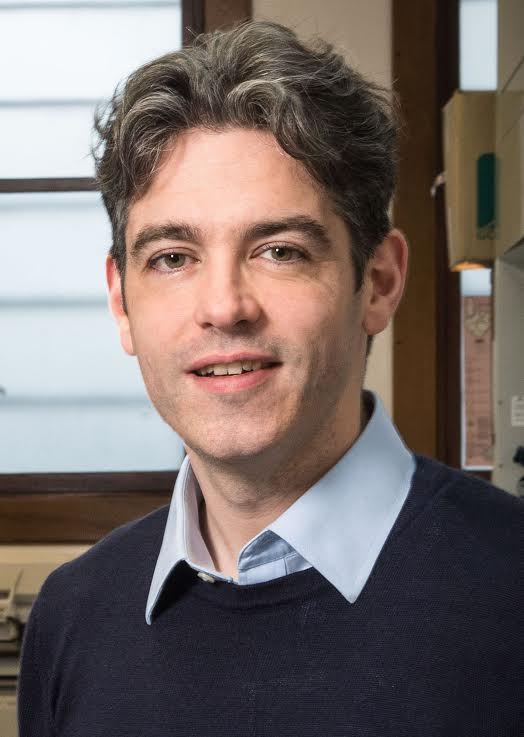Podcast: Play in new window | Download
Subscribe: Apple Podcasts | RSS
Dr. Lee Cronin is the Regius Professor of Chemistry at the University of Glasgow. He received his Bsc in Pure Chemistry with First Class Honors as well as his PhD in Inorganic Chemistry from York University. Afterward, he served as a Research Fellow at the University of Edinburgh, an Alexander von Humboldt Research Fellow, and a Lecturer at the University of Birmingham before joining the faculty at Glasgow University where he is today. Lee is an accomplished chemist who has been honored with many awards including recognition as one of the United Kingdom’s top 10 Inspiring Scientists and Engineers by the Engineering and Physical Sciences Research Council in 2014 and one of the top 100 United Kingdom practicing Scientists by the UK Science Council. He received the Royal Society of Chemistry’s Corday Morgan Medal and Prize in 2012 and Tilden Prize for pure research in 2015. In addition, Lee is a member of the Royal Society of Edinburgh and recipient of the Royal Society’s 2013 BP Hutton Prize for Energy Innovation for applied research. Lee is here with us today to tell us all about his journey through life and science.
People Behind the Science Podcast Show Notes
Life Outside of Science (2:29)
Lee spends his time outside of work running, reading, and playing with technology like 3D printers and drones. Since his childhood, he has enjoyed tinkering and taking things apart, and now he is able to share these activities with his own kids.
The Scientific Side (4:31)
In the lab, Lee is answering a variety of questions that involve chemistry. He is particularly interested in determining how life started and how we can make new life forms from scratch. Other areas of research include molecular devices and self assembly.
A Dose of Motivation (5:40)
Lee is strongly motivated by the desire to answer the question “Why?”.
What Got You Hooked on Science? (8:57)
When he was young, Lee was fascinated by the world around him and was obsessed with minimality. He assembled small survival kits with the minimum number of things he needed to survive, including the necessities to start fires, have clean water, and catch food. On one occasion this obsession left Lee contemplating his assured survival while sipping his less-than-delicious, pinkish (but bacteria-free!) water supply. Lee describes how he went from a curious kid in the learning difficulty group in school to the prominent scientist he is today.
The Low Points: Failures and Challenges (23:50)
At the moment Lee’s lab is starting to work in a well-established area in chemistry where the new phenomena they have discovered, related to the origins of life, are being met with mixed reviews. His colleagues seem to either dismiss the lab’s work as obvious or discount his findings as impossible. Not only is he facing rejection from fellow scientists in the field, but his papers and proposals are also being rejected.
A Shining Success! (29:47)
One of the accomplishments Lee is most proud of is when his lab discovered a completely new way to split water into hydrogen and oxygen. Papers on two different forms of this new water splitting process were published in the prestigious journals Nature Chemistry and Science. The lab determined a way to make the process safer and more durable, and Lee has started a company to commercialized this technology to make a new type of gas generator.
Book Recommendations (3:39)
Mortal Engines by Stanislaw Lem, Zen and The Art of Motorcycle Maintenance by Robert M. Pirsig
Most Treasured Travel (35:18)
Japan is one of the fascinating places Lee has been that really stands out. The science and the hill climbing in Hokkaido were great, but getting lost in Electric Town is one of his fondest memories from the trip. He stumbled across a cheap robot that he brought back, programmed, and has been using in the lab. This provided an entirely new and unexpected spinoff for his research.
Quirky Traditions and Funny Memories (37:29)
Lee and his lab group are known as “The Cronies”. As the lab got bigger and it became harder for lab members to discuss mundane lab happenings with Lee, he decided it would be a great idea to make a lab email list so they could easily discuss issues. The email list he created wasn’t really being used, and Lee was surprised and proud to discover that the lab members had made their own list called “The Cronies minus Lee” to work out many of the lab issues amongst themselves.
Advice For Us All (43:13)
Make sure you are interested in what you are doing and keep doing it. Also, if people take the time to give you criticism, appreciate it and act on it.
Guest Bio
The focus of Lee’s work is understanding and controlling self-assembly and self-organization in Chemistry to develop functional molecular and nano-molecular chemical systems (including solar fuel systems); linking architectural design with function and recently engineering system-level functions (e.g. coupled catalytic self-assembly, emergence of inorganic materials and fabrication of inorganic cells that allow complex cooperative behaviors). Much of this work is converging on exploring the assembly and engineering of emergent chemical systems aiming towards ‘inorganic biology’. This work has been presented in over 300 papers and 250 lectures worldwide. It is also worth pointing out that the expertise in the Cronin group (which numbers over 50 people and > £10 M in funding) is unique bringing together inorganic/synthetic chemists, chemical engineers, complex system modelling, evolutionary theory, robotics and artificial intelligence.

Leave a Reply